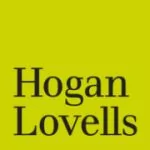Originally published 10 June 2011
Yesterday, five U.S. Senators sent a letter to the Department of Health and Human Services Office of Inspector General (OIG) requesting that the OIG investigate the legality of physician-owned implant distributors (PODs), entities that allow physicians to profit from the sale of surgical implants used on their patients. A companion letter to CMS asked that the agency be certain not to inadvertently provide protection for PODs when drafting the ownership disclosure requirements under the Physician Payments Sunshine Act. The letter was accompanied by a report from the Senate Finance Committee describing the recent proliferation of PODs. Both documents were described in a Wall Street Journal article published yesterday.
The OIG letter and the report express serious concerns about the abuse associated with PODs and question their legality under the anti-kickback law. They also provide substantial support to a position that Hogan Lovells has advocated with respect to legal analysis of PODs: that the potential for abuse is so significant that the traditional joint venture analysis that the OIG has applied to physician-owned service providers (like labs and imaging centers) does not appear to apply to PODs.
The anti-kickback law has long been interpreted to be violated if one purpose of a financial arrangement is to reward doctors for their referrals. Through its safe harbors to the law, the OIG has identified certain safety zones. For joint ventures outside a safety zone, the OIG has shared its views of which abuses will cause a provider joint venture to be worthy of prosecution. Its Special Fraud Alert on physician joint ventures, issued in 1989, identifies questionable features of those ventures,1 and its 2003 Special Advisory Bulletin on contractual joint venture similarly identifies "indicia of a suspect joint venture."2
The Senate report fairly clearly advises the OIG not only that it believes PODs possess many of these questionable features, but also that the traditional leniency towards certain physician-owned providers of ancillary services that OIG has allowed through the Special Fraud Alert and Special Advisory Bulletin should not be shown in the case of PODs. The letter and the report state that PODs are importantly different from ancillary service providers, which at least are regulated entities furnishing an actual health care service. In contrast, the Senators indicate that PODs, as middlemen that exist only to assure that physicians get paid a piece of the implants they order, do not deserve the leniency under the anti-kickback law that the OIG has shown to physician-owned providers that meet certain standards. ("[W]e are worried that OIG's existing guidance, which is largely focused on physician-owned providers of ancillary healthcare services, and its expressions of concern, is not adequate to protect against the risk of PODs abuse." Letter to OIG, page 2.)
Further evidence that the Senate views PODs as outside the zone of leniency normally accorded to physician-owned service providers is that its example of what might be a legal and appropriate POD is one that does no business with its physician owners or the hospitals where they practice. ("For example, if a POD was not permitted to do business with its own investors, their partners, or affiliated hospitals, presumably they would be acting as a traditional distributor and not be able to profit from their usage or the usage of other physician investors." Senate report, page 4.)
he Wall Street Journal article about the Senators' letter and report quotes Tom Scully, former director of the Medicare program, who also expresses serious skepticism about the legality of PODs. "You can't possibly think this is OK," he said. (Wall Street Journal article, page 2.)
The Senate's concern with PODs, and its strongly-worded report and letters, would seem to portend a dramatic increase in the risk the physicians, hospitals, and implant suppliers run when they agree to share implant profits with referring physicians through a POD. Further information on the legal problems with PODs can be found on Hogan Lovells' webpage devoted to physician-owned companies (POCs).
We will be watching developments closely. If you have any questions, please do not hesitate to contact one of the authors listed below, or any Hogan Lovells lawyer with whom you regularly work.
Footnotes
1. The 1989 Special Fraud Alert is available on the OIG's website at oig.hhs.gov/fraud/docs/alertsandbulletins/121994.html.
2. The 2003 Special Advisory Bulletin is available on the OIG's website at oig.hhs.gov/fraud/docs/alertsandbulletins/042303SABJointVentures.pdf.
The content of this article is intended to provide a general guide to the subject matter. Specialist advice should be sought about your specific circumstances.

